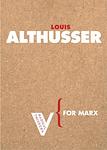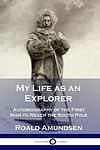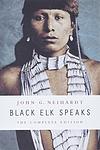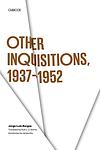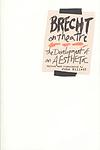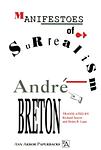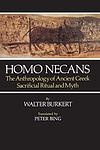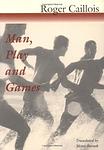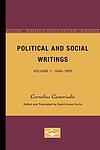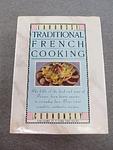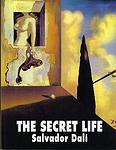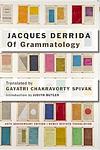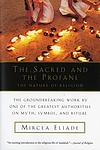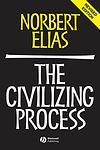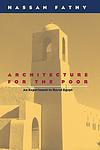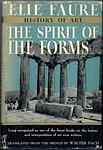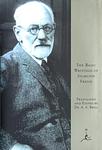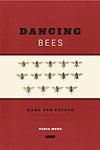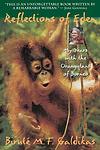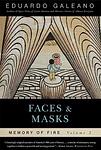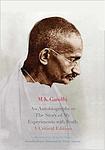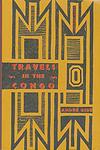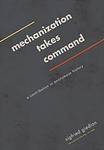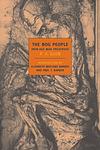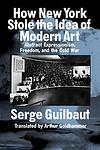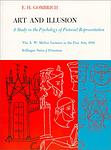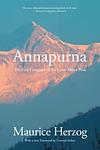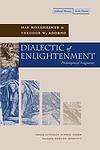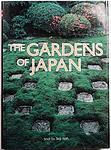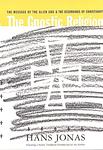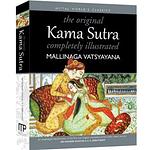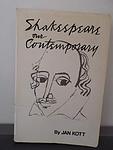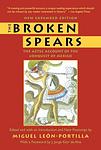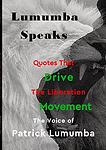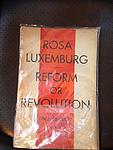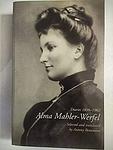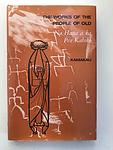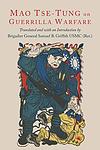100 Best Non-Fiction Books (in Translation) of the 20th Century … and Beyond
This is one of the 305 lists we use to generate our main The Greatest Books list.
-
My Half Century by Anna Akhmatova
"My Half Century" is a reflective anthology that encapsulates the personal and professional life of a prominent Russian poetess through her own writings and letters, as well as critical essays about her work. The collection spans the tumultuous periods of Russian history from the early 20th century through the Stalinist era, providing a window into the poet's profound resilience and adaptation in the face of personal and political upheaval. Her poetry, marked by its emotional depth and lyrical beauty, explores themes of love, grief, and the endurance of the human spirit, while also subtly critiquing the oppressive political climate of her time. This compilation not only celebrates her literary genius but also her role as a witness to a critical period in Russian history.
The 7120th Greatest Book of All Time -
For Marx by Louis Althusser
"For Marx" is a collection of essays that delve into the complexities of Marxist theory, aiming to rejuvenate and redefine Marxist philosophy in the context of the 20th century. The book critically examines existing interpretations of Marxism while introducing the concept of "theoretical practice." The author argues for the scientific rigor of Marxist thought and emphasizes the importance of ideology's role in political struggles. Through a structuralist approach, the work seeks to distance itself from humanist and economistic readings of Marxism, advocating for a return to the foundational texts and insisting on the revolutionary potential embedded in rigorous theoretical analysis.
The 5517th Greatest Book of All Time -
The South Pole by Roald Amundsen
The book is a detailed firsthand account of the first successful expedition to the South Pole, led by the author, a noted Norwegian explorer. It chronicles the meticulous planning, the journey's challenges, and the strategic decisions that enabled the team to reach the pole on December 14, 1911, ahead of their British rivals. The narrative combines personal reflections, vivid descriptions of the harsh Antarctic environment, and insights into the teamwork and innovation crucial for survival and success in one of the most extreme climates on Earth.
The 5517th Greatest Book of All Time -
The Theater and Its Double by Antonin Artaud
This book is a collection of manifestos, letters, and essays on theatre written by a 20th-century playwright and actor. It advocates for the Theatre of Cruelty, a form of theatre that rejects the comforts of traditional literature and the physicality of dance and pantomime. Instead, it emphasizes the use of symbolism, gesture, and expression to reveal the basest instincts of humanity and the subconscious mind. The author argues that theatre should not be a mere representation of reality but should affect the audience on a deep, visceral level.
The 2104th Greatest Book of All Time -
Minima Moralia by Theodor Adorno
"Minima Moralia" is a collection of aphoristic essays that delve into the intricacies of modern life under capitalism and the pervasive influence of the culture industry. Written during the author's exile in the mid-20th century, the work reflects on the erosion of individuality and the subtle tyrannies of conformity and ideological manipulation. The essays blend philosophy, sociology, and cultural critique, offering profound insights into the human condition and the social dynamics of contemporary society. Through its critical examination of everyday phenomena, the book challenges readers to reconsider their perceptions of normality and ethics in a rapidly changing world.
The 5517th Greatest Book of All Time -
The Hour Of Our Death by Philippe Ariès
"The Hour of Our Death" delves into the profound and evolving relationship between humanity and death from the early Middle Ages to the present. The book presents a detailed historical analysis of attitudes toward death, revealing how cultural, social, and religious elements have shaped human responses to mortality. It explores the rituals of dying and the customs of mourning, highlighting the transition from a familiar acceptance of death's constant presence in daily life to its modern sequestration and medicalization, which has altered but not diminished its profound impact on the human psyche and society.
The 6121st Greatest Book of All Time -
Mimesis by Erich Auerbach
"Mimesis: The Representation of Reality in Western Literature" is a comprehensive analysis of the evolution of realism in Western literature, tracing its development from ancient times to the modern era. The book examines how literature captures and reflects the reality of human experiences, using detailed analyses of key texts from different historical periods. Through its exploration of works ranging from Homer and the Bible to modern European novels, the book demonstrates how changes in social, cultural, and intellectual contexts influence literary styles and techniques in representing reality. The author argues that literature serves as a mirror to the complexities and nuances of human life, revealing deep insights into societal values and human nature.
The 5517th Greatest Book of All Time -
The Poetics Of Space by Gaston Bachelard
"The Poetics of Space" explores the relationship between spaces and the human psyche, particularly focusing on the importance and symbolism of intimate spaces like houses, rooms, and corners. The book delves into the philosophy and psychology of architecture, using poetic imagery and phenomenology to examine how people experience and inhabit personal spaces. It argues that these spaces hold deep emotional significance and that understanding them can reveal insights about memory, imagination, and the essence of being. Through its analysis, the text invites readers to reconsider the ordinary environments of daily life as rich landscapes of poetic expression and emotional depth.
The 3669th Greatest Book of All Time -
Mythologies by Roland Barthes
This book is a collection of essays that explore the layers of cultural and societal meanings that are imbued in everyday objects, activities, and phenomena. The author decodes the symbols and signs embedded in things as varied as wrestling, soap detergents, toys, and even the face of Greta Garbo. The book is a pioneering exploration of semiotics, the study of signs and symbols, and it challenges readers to question and understand the cultural connotations and ideologies that are presented as natural or given in our everyday lives.
The 811th Greatest Book of All Time -
Eroticism by Georges Bataille
"Eroticism" is a philosophical inquiry into the nature of sexuality and its relationship to death and taboo. The book delves into the concept of eroticism as a form of inner experience that transcends mere physical sex by challenging societal norms and embracing mortality. The author explores how eroticism is inherently linked to the awareness of life's fleetingness, arguing that it represents a fundamental aspect of human existence that both contests and complements the domain of the sacred. Through a blend of anthropology, psychology, philosophy, and personal insight, the work examines how eroticism manifests in various cultures and how it influences human behavior and social structures.
The 5517th Greatest Book of All Time -
The Egyptian, Syrian, And Iraqi Revolutions by Hanna Batatu
The book provides a comprehensive analysis of the socio-political dynamics and revolutionary movements in Egypt, Syria, and Iraq throughout the 20th century. It delves into the historical context, key political figures, and socio-economic conditions that led to the uprisings and transformations in these countries. The author meticulously examines the interplay of various social classes, political parties, and external influences, offering a detailed narrative and critical insights into the mechanisms of power, resistance, and change within these Arab states.
The 6293rd Greatest Book of All Time -
Orson Welles by André Bazin
This book provides an in-depth analysis of Orson Welles, a seminal figure in cinematic history, whose innovative techniques and storytelling prowess left an indelible mark on the world of film. The author meticulously examines Welles' entire oeuvre, from his groundbreaking work in "Citizen Kane" to lesser-known projects, highlighting his artistic evolution, thematic interests, and the distinctive use of sound and visuals. Through a critical lens, the book explores how Welles challenged conventional filmmaking norms and discusses his lasting influence on both contemporary directors and the broader cinematic landscape.
The 5517th Greatest Book of All Time -
The Second Sex by Simone de Beauvoir
This influential work explores the treatment and perception of women throughout history, arguing that women have been repressed and defined only in relation to men. The author presents a detailed analysis of women's roles in society, family, work, and in the creation of their own identities. She discusses the concept of 'the other' and how this has been used to suppress women, while also examining the biological, psychological, and societal impacts of this oppression. The book is a seminal text in feminist theory, challenging traditional notions of femininity and calling for equality and freedom for women.
The 130th Greatest Book of All Time -
Illuminations by Walter Benjamin
"Illuminations" is a collection of essays that delve into the complex interplay between society, culture, and art. The book explores the nature of artistic expression and its role in historical contexts, examining how cultural artifacts reflect and influence the conditions of their times. It discusses the concept of the "aura" of artworks, the impact of technological reproduction on art's value and meaning, and the role of the critic in interpreting cultural texts. The work also includes a seminal essay on the philosophy of history, which critiques traditional historical narratives and argues for a more nuanced understanding of the past, informed by Marxist theory and a sensitivity to the cultural and political undercurrents that shape human experience.
The 3202nd Greatest Book of All Time -
Black Elk Speaks by John G. Neihardt
"Black Elk Speaks" is a profound narrative that recounts the life of a Native American medicine man from the Oglala Lakota tribe. It provides a unique perspective on the Lakota people's history and culture, their spiritual beliefs, and the impact of westward expansion on their way of life. The book also delves into the protagonist's personal spiritual visions, which he believes have significant prophetic and healing powers. The narrative is a poignant exploration of the clash between cultures and the devastating effects of colonization on indigenous peoples.
The 1686th Greatest Book of All Time -
Feudal Society by Marc Bloch
"Feudal Society" is a comprehensive historical analysis that delves into the social, economic, and political structures of medieval Europe. The book explores the intricate system of feudalism, where society was hierarchically divided between kings, nobles, knights, and serfs, each bound by mutual obligations and duties. Through a detailed examination of legal documents, personal accounts, and other historical sources, the work illuminates how these relationships shaped European society from the ninth to the fifteenth century, influencing everything from land tenure and military service to legal jurisdiction and social norms. The study not only provides insights into the feudal system itself but also reflects on its long-term impacts on European history.
The 5517th Greatest Book of All Time -
Chinook Texts by Franz Boas
"Chinook Texts" is a collection of original narratives and texts in the Chinook language, accompanied by English translations. Compiled by a prominent anthropologist, the book serves as a significant resource for understanding the linguistic and cultural heritage of the Chinook people of the Pacific Northwest. The texts, which include myths, legends, and historical accounts, provide insights into the social structure, beliefs, and daily life of the Chinook. This work is particularly valuable for researchers and scholars interested in Native American languages, folklore, and anthropology.
The 5517th Greatest Book of All Time -
Other Inquisitions by Jorge Luis Borges
"Other Inquisitions" is a collection of essays that explore a wide range of topics including literature, philosophy, and metaphysics. The author uses his profound knowledge of world literature and history to delve into complex subjects such as time, identity, and infinity. He also provides insightful commentary on various authors and their works, reflecting on their influence and significance. The book is marked by the author's characteristic style of blending fiction, reality, and scholarly analysis, making it a thought-provoking read.
The 2636th Greatest Book of All Time -
Acts Of Resistance by Pierre Bourdieu
"Acts of Resistance" is a critical examination of the negative impacts of neoliberal policies on various aspects of society, including culture, education, and the economy. The book argues that these policies, which prioritize market values and corporate interests, undermine the foundations of democratic life and social justice. The author, a prominent sociologist, calls for intellectuals and citizens to resist these trends by defending the values of public welfare and social solidarity. Through a series of essays, the book explores the ways in which power and media manipulate public opinion and emphasizes the importance of critical thinking and collective action in the face of growing inequality and social fragmentation.
The 7784th Greatest Book of All Time -
The Mediterranean And The Mediterranean World In The Age Of Philip Ii by Fernand Braudel
This seminal work offers a comprehensive analysis of the Mediterranean region during the 16th century, focusing on the complex social, political, and economic landscapes that defined the era of Philip II of Spain. The book transcends traditional historiography by emphasizing the geographical and ecological factors that shaped human activity, from the ebb and flow of commerce and the patterns of agrarian life to the rise and fall of empires. Through a meticulous study of the Mediterranean world, the narrative weaves together the intricate tapestry of cultures, religions, and power dynamics that characterized the period, providing a vivid portrayal of the enduring influence of the environment on the course of human history.
The 1124th Greatest Book of All Time -
Brecht On Theatre by Bertolt Brecht
"Brecht on Theatre" is a seminal work that compiles various essays, notes, and journal entries that delve into the theories and practices of influential German playwright and director Bertolt Brecht. The book explores Brecht's development of Epic Theatre, a style intended to provoke rational self-reflection and a critical view of the action on the stage, rather than emotional manipulation. Brecht's ideas emphasize the importance of the audience's engagement through a variety of innovative dramatic techniques, including the alienation effect, which aims to prevent the audience from losing itself passively and completely in the character's emotions. This collection serves as an essential guide for understanding the evolution of modern theatre and Brecht's enduring influence on dramaturgy and performance.
The 5517th Greatest Book of All Time -
Surrealist Manifesto by André Breton
The Surrealist Manifesto is a groundbreaking work that introduces and defines the surrealist movement in literature and art. The book, written by the founder of the movement, presents the idea that the rational mind represses the power of the imagination, weighting it down with taboos. It argues that the world of dreams and the unconscious should be embraced to enhance creativity, leading to more complete and fulfilling human experience. The book also criticizes traditional societal structures and norms, advocating for revolution and freedom of thought.
The 2018th Greatest Book of All Time -
My Last Sigh by Luis Buñuel
"My Last Sigh" is an autobiography that offers a candid and vivid account of the life and career of one of cinema's most groundbreaking and influential directors. The book delves into his early years in Spain, his deep friendships with prominent artists and intellectuals, and his experiences in the surrealist movement. It also explores his creative process, the making of his major films, and his philosophical and personal reflections. Rich with anecdotes and insights, the memoir provides a unique window into the artistic, social, and political climates of his times, revealing the complex and often contradictory nature of a fiercely original filmmaker.
The 6224th Greatest Book of All Time -
Homo Necans by Walter Burkert
The book explores ancient Greek rituals and myths, arguing that the acts of sacrifice and hunting were not only rooted in practical needs but also deeply embedded in the psychological and religious aspects of Greek society. It delves into how violence and the sacred were intertwined, suggesting that the ritual killing of animals and sometimes humans served as a foundational mechanism for social cohesion and the establishment of order. Through detailed analysis of historical texts and comparison with other cultures, the work presents a compelling view of how violence in ritual contexts was used to negotiate the complex relationship between the mortal and the divine.
The 5517th Greatest Book of All Time -
Man, Play And Games by Roger Caillois
"Man, Play and Games" is a seminal work that explores the nature and significance of play in human societies. The book categorizes play into four core types: competition, chance, simulation, and vertigo, and introduces the concepts of paidia and ludus to describe the continuum between free, unstructured play and rule-based games. The author argues that play is fundamental to human culture, serving both as a mirror of social life and as a form of activity that is essential for the development of civilization. Through a detailed analysis of different games and play forms across cultures, the book examines how play involves both the creation of imaginary worlds and the testing of boundaries, ultimately influencing various aspects of social life including art, language, and law.
The 5517th Greatest Book of All Time -
The Myth of Sisyphus by Albert Camus
This book is a philosophical essay that explores the concept of absurdity, and how individuals should respond to life's inherent meaninglessness. It posits that life is essentially absurd due to the conflict between our desire for understanding and the chaotic, indifferent universe. The author argues that the only proper response to this absurdity is to live life to its fullest, embracing and rebelling against the absurdity, rather than resorting to suicide or turning to religion or philosophy for false comfort. The story of Sisyphus, condemned to eternally roll a boulder up a hill only for it to roll back down, is used as a metaphor for the human condition.
The 580th Greatest Book of All Time -
Political And Social Writings by Cornelius Castoriadis
"Political and Social Writings" is a collection of essays and texts that delve into the critical analysis of Marxist theory, the potential for autonomous social organization, and the deep examination of modern capitalist societies. The author, a noted philosopher and social critic, challenges traditional Marxist viewpoints, particularly the deterministic views of history and economy. He advocates for the importance of autonomous, democratic self-organization of society, and explores the role of creativity and imagination in the formation of social norms and institutions. Through these writings, he contributes significantly to debates about democracy, autonomy, and the limits of political and social structures in contemporary society.
The 6561st Greatest Book of All Time -
Theory Of Peasant Economy by Alexander V. Chayanov
"Theory of Peasant Economy" explores the unique economic behaviors and motivations of peasant households, which differ significantly from those of capitalist enterprises. The book argues that peasant economic decisions are primarily based on the family's labor balance rather than on maximizing profits. The author introduces the concept of the "family-labor farm," where the household's subsistence needs dictate agricultural production levels and the use of family labor. This seminal work challenges traditional economic theories by emphasizing the importance of internal family dynamics and demographic changes in understanding the economics of peasant life.
The 5517th Greatest Book of All Time -
Towards A New Architecture by Le Corbusier
In "Towards a New Architecture," the author advocates for a radical shift in the approach to architectural design, emphasizing the importance of function and utility over ornamental aesthetics. He argues that architecture should be as efficient and simple as the engineering of automobiles and airplanes, promoting the use of modern materials like steel and concrete to create standardized, cost-effective, and functional buildings. The book is influential in the development of modernist architecture, presenting principles such as the use of geometric forms and the pilotis, which elevate buildings on reinforced concrete stilts, allowing for an open floor plan and unobstructed views.
The 5517th Greatest Book of All Time -
Traditional French Cooking by Curnonsky
This book is a comprehensive guide to classic French cuisine, offering readers an in-depth exploration of France's culinary traditions. Written by a revered figure in French gastronomy, it compiles an array of recipes ranging from simple, rustic dishes to sophisticated, haute cuisine. The book not only provides detailed instructions on how to prepare iconic French dishes but also delves into the techniques and philosophies behind the recipes, emphasizing the importance of using quality ingredients and mastering foundational cooking methods. It serves as both a practical cookbook and a tribute to French culinary art, making it a valuable resource for both novice cooks and experienced chefs looking to refine their skills in French cooking.
The 5517th Greatest Book of All Time -
Rebellion In The Backlands by Euclides da Cunha
This book offers a detailed and vivid account of the War of Canudos, a significant peasant revolt that took place in the late 19th century in the Brazilian backlands. Through a blend of historical documentation and narrative, the text explores the socio-political conditions that led to the uprising, the charismatic leadership of Antônio Conselheiro, and the brutal suppression of the rebellion by the Brazilian government. The author delves into the geography, culture, and lives of the backland inhabitants, providing a deep analysis of the conflict as a reflection of the broader struggles within Brazilian society. This work is not only a historical account but also a profound commentary on the themes of civilization versus barbarism, social injustice, and the complexities of national identity.
The 1595th Greatest Book of All Time -
The Secret Life Of Salvador Dali by Salvador Dali
"The Secret Life of Salvador Dalí" is an autobiography that offers an intriguing glimpse into the mind and life of the renowned surrealist artist. Written by Dalí himself, the book explores his early years, his rise to fame, and the development of his eccentric and flamboyant persona. Through vivid, often bizarre anecdotes and reflections, Dalí shares his thoughts on art, his obsessions, and his relationships with other famous figures of the 20th century. The narrative is characterized by its imaginative prose and the artist’s characteristic blend of arrogance and insight, providing a unique perspective on his creative genius and complex personality.
The 5517th Greatest Book of All Time -
The Society Of The Spectacle by Guy Debord
"The Society of the Spectacle" is a critical philosophical treatise that explores the ways in which modern society is dominated by the commodification of social life and the pervasive influence of mass media. The author argues that authentic social interactions have been replaced by mere representations and appearances, facilitated by an array of spectacles—events, images, and media that serve to maintain the status quo by promoting passive recognition and consumption rather than active participation. This work delves into the consequences of living in a society where everything that was directly lived has moved away into a representation, examining the implications for individual autonomy and social change.
The 5517th Greatest Book of All Time -
Of Grammatology by Jacques Derrida
The book is a foundational text in the field of deconstruction, challenging traditional assumptions about the relationship between speech and writing. The author argues that Western thought has consistently privileged speech over writing, mistakenly regarding speech as a more direct expression of thought. Through a detailed critique of Saussurean linguistics, as well as the works of philosophers such as Rousseau, Nietzsche, and Levi-Strauss, the text exposes and deconstructs this bias, proposing that writing actually precedes and structures speech. This radical reevaluation has profound implications for philosophy, linguistics, and critical theory, suggesting that all texts are inherently unstable and their meanings undecidable.
The 5517th Greatest Book of All Time -
Gardens Of Adonis by Marcel Detienne
"Gardens of Adonis" delves into the intricate world of ancient Greek mythology and rituals, focusing on the figure of Adonis. The book explores the symbolic and practical roles of spices and herbs in Greek culture, particularly in relation to the Adonis cult. Through an analysis of the ephemeral gardens dedicated to Adonis, the work examines themes of fertility, death, and rebirth, revealing how these gardens, despite their fleeting nature, held profound meanings for ancient Greek society. The study highlights the interplay between myth and ritual, offering insights into the agricultural and religious practices of the time.
The 5517th Greatest Book of All Time -
Stranglehold On Africa by René Dumont
"Stranglehold on Africa" is a critical examination of the post-colonial economic and political challenges faced by African nations. The book delves into the detrimental effects of foreign aid dependency, the exploitation of African resources by Western countries, and the pervasive corruption and mismanagement within African governments. The author argues that these factors have collectively hindered sustainable development and perpetuated a cycle of poverty and underdevelopment. Through a blend of analysis and firsthand observation, the book calls for a reevaluation of international policies and aid strategies, advocating for more equitable and sustainable approaches to supporting Africa's self-sufficiency and growth.
The 6085th Greatest Book of All Time -
Film Form by Sergei Eisenstein
"Film Form" is a seminal work in film theory and criticism that explores the complexities of film montage and its potential for creating meaning. The book compiles a series of essays that delve into the intricacies of film editing, arguing that the juxtaposition of images can produce ideas and emotional responses that are not inherent in the individual images themselves. The author, a pioneering filmmaker, uses examples from his own work and others' to illustrate how montage can manipulate time and space, evoke moods, and convey political messages, ultimately asserting that film is a powerful form of art capable of influencing thought and perception.
The 5517th Greatest Book of All Time -
The Sacred And The Profane by Mircea Eliade
"The Sacred and the Profane" explores the concept of human experience of the sacred, contrasting it with the profane world of everyday life. The author delves into various religious practices and beliefs to illustrate how traditional societies have structured their worldviews and environments through religious symbolism and myth. By examining sacred spaces, time, and nature, the book reveals how the sacred elevates and enriches human life, providing a sense of meaning and orientation. The analysis highlights the universal human tendency to seek connections with a transcendent reality, thereby separating and distinguishing the sacred from the ordinary.
The 5517th Greatest Book of All Time -
The Civilizing Process by Norbert Elias
"The Civilizing Process" is a sociological treatise that explores the development of manners, changes in behavior, and the evolution of social norms from the medieval period to the early modern era in Western Europe. The book argues that the transformation in social codes, particularly around violence and the regulation of impulses, is closely linked to the formation of state power and the monopolization of physical force. Through a detailed analysis of historical documents on etiquette, the author illustrates how the increasing pressures of social structures and interdependencies require more regulated forms of behavior, leading to what is described as the "civilizing process." This process, according to the author, reflects broader socio-political changes and is integral to understanding the dynamics of state formation and individual behavior regulation in European history.
The 2143rd Greatest Book of All Time -
The Wretched of the Earth by Frantz Fanon
This book is a psychological and political analysis of the dehumanizing effects of colonization upon the individual and the nation. It provides a clear, passionate condemnation of colonialism and its legacy, arguing that violence is a necessary component of decolonization. The author also discusses the challenges that newly independent nations face, including the struggle to establish a national culture and the threat of neocolonialism.
The 977th Greatest Book of All Time -
Architecture For The Poor by Hassan Fathy
"Architecture for the Poor" is a book that describes an innovative approach to building in impoverished communities, focusing on the use of sustainable, cost-effective materials and methods that are culturally and environmentally appropriate. The author, an Egyptian architect, advocates for the use of traditional building techniques, particularly mud brick, and emphasizes the importance of involving the community in the building process. This approach not only helps to reduce costs but also empowers the residents, fostering a sense of pride and ownership. The book is both a critique of modern urban planning and a call to rethink architectural practices to better serve the needs of the poorest members of society.
The 5517th Greatest Book of All Time -
History Of Art by Elie Faure
"History of Art" is a comprehensive exploration of the evolution of art across different civilizations and epochs, tracing the development of artistic expression from ancient times to the modern era. The book delves into the cultural, social, and historical contexts that shaped various art forms and movements, offering insights into the techniques, themes, and aesthetic values of different periods. Through a detailed examination of significant artworks and figures, the narrative highlights the continuous influence of past traditions on contemporary art, emphasizing the universal and enduring nature of human creativity.
The 5517th Greatest Book of All Time -
Cinema And History by Marc Ferro
"Cinema and History" explores the intricate relationship between cinema and historical events, analyzing how films reflect and shape public perceptions of history. The book delves into the ways filmmakers from various cultures and periods have portrayed historical figures and incidents, highlighting the influence of political, social, and cultural contexts on these depictions. It also examines the role of propaganda, the impact of historical films on collective memory, and the differences between cinematic and historical narratives. Through a critical lens, the author discusses the potential of cinema to both distort historical truth and provide profound insights into historical realities.
The 5805th Greatest Book of All Time -
Discipline and Punish by Michel Foucault
This book delves into the historical evolution of the penal system, examining how Western societies have transitioned from a regime of violent, public physical punishment to a more subtle form of surveillance and control. It introduces the concept of the "panopticon," a metaphor for modern disciplinary societies that exercise power through observation and normalization rather than through overt physical coercion. The work explores the relationship between power, knowledge, and social control, arguing that disciplinary mechanisms are embedded in various institutions, such as schools, hospitals, and prisons, shaping individuals and maintaining order in society.
The 1064th Greatest Book of All Time -
The History Of Sexuality by Michel Foucault
"The History of Sexuality" explores the complex relationship between power and sexual discourse, arguing that since the 17th century, Western societies have not repressed sexuality but rather incited it, making it an object of public discourse. The author examines how power operates through the production of knowledge about sex and uses this perspective to challenge the conventional narrative that society has been progressively liberating sexuality from repression. The book delves into the ways in which sexual norms and power relations are intertwined, suggesting that the discourse on sexuality is a tool of power used to regulate both individual bodies and entire populations.
The 5714th Greatest Book of All Time -
The Diary of a Young Girl by Anne Frank
This book is a real-life account of a young Jewish girl hiding from the Nazis during World War II, written in diary format. The girl and her family are forced to live in a secret annex in Amsterdam for two years, during which she writes about her experiences, fears, dreams, and the onset of adolescence. The diary provides a poignant and deeply personal insight into the horrors of the Holocaust, making it a powerful testament to the human spirit.
The 60th Greatest Book of All Time -
Pedagogy Of The Oppressed by Paulo Freire
This book is a seminal work in the field of critical pedagogy that explores the complex relationship between the oppressor and the oppressed in educational contexts. The author argues that traditional pedagogical methods perpetuate existing hierarchies and suggests a new approach called "problem-posing education," which emphasizes dialogue and critical thinking to empower learners to question and challenge oppressive systems. The text is both a critique of the way education is often used as a tool of domination and a guide for how it can instead be transformed into a practice of freedom, helping individuals to achieve self-realization and societal change.
The 5517th Greatest Book of All Time -
The Psychopathology Of Everyday Life by Sigmund Freud
The book explores the psychological underpinnings of seemingly trivial mistakes and forgetfulness in everyday life, such as slips of the tongue (often referred to as Freudian slips), forgetting names or words, and misplacing objects. The author argues that these errors are not mere accidents but rather manifestations of unconscious thoughts and desires that reveal much about the workings of the human mind. Through a series of engaging anecdotes and case studies, the book delves into the ways in which the subconscious mind influences behavior and sheds light on the deeper layers of human psychology that influence everyday actions and interactions.
The 5517th Greatest Book of All Time -
Three Essays on the Theory of Sexuality by Sigmund Freud
This book is a seminal work that presents the author's theories on human sexuality, including his concept of sexual development through psychosexual stages. It explores topics such as the sexual aberrations, infantile sexuality, and the transformation of puberty. The author argues that sexual drive is present from birth, and that children go through several stages of sexual development. He also discusses the idea of sexual perversions and their origins. This book is considered a foundational text in the field of psychoanalysis.
The 1207th Greatest Book of All Time -
The Dancing Bees by Karl von Frisch
"The Dancing Bees" is a fascinating exploration of the behavior and communication of bees, particularly focusing on the groundbreaking discovery of the bee dance language. The book delves into how bees use dance movements to communicate vital information about the location of food sources to their hive mates. Through meticulous observation and innovative experiments, the author unveils the complexity of bee communication and the remarkable precision with which bees can convey specific information about distance and direction. This work not only highlights the intricate social structure of bee colonies but also reflects on broader themes of animal intelligence and communication.
The 5517th Greatest Book of All Time -
Reflections Of Eden by Birute Galdikas
"Reflections of Eden" is a captivating memoir by a pioneering primatologist who delves into her immersive experiences studying orangutans in the remote rainforests of Borneo. The book chronicles her profound journey, beginning as a young researcher inspired by Louis Leakey and evolving into one of the world’s leading authorities on orangutans. Through her vivid narrative, the author shares the challenges and triumphs of her fieldwork, her deepening understanding of orangutans, and her relentless efforts in conservation. The memoir not only highlights scientific discoveries but also explores the emotional and ethical complexities of her life’s work in the context of the environmental and cultural pressures impacting the region.
The 6998th Greatest Book of All Time -
The Memory of Fire Trilogy by Eduardo Galeano
"The Memory of Fire Trilogy" is a historical narrative that explores the history of the Americas from pre-Columbian times to the present day. It provides an alternative perspective on the continent's history, focusing on the struggles and triumphs of indigenous people, slaves, and the poor. The trilogy is a blend of mythology, personal anecdotes, and historical facts, providing a unique and critical view of American history.
The 1995th Greatest Book of All Time -
The Story Of My Experiments With Truth by Mahatma Gandhi
This book is an autobiography that details the personal journey of a prominent leader who played a key role in India's struggle for independence from British rule. It explores his philosophy of nonviolent resistance and truth, which he refers to as "Satyagraha," and traces his development from a young, unsure boy into a principled activist committed to social justice. The narrative delves into his experiments with diet, celibacy, and other personal challenges, reflecting his quest for self-improvement and moral integrity, which he believed were essential for political leadership and social reform.
The 1687th Greatest Book of All Time -
Prisoner Of Love by Jean Genet
"Prisoner of Love" is a non-fiction book that blends memoir, history, and philosophical reflection. It chronicles the author's experiences in the late 1960s and early 1970s among Palestinian fedayeen (guerrilla fighters) and later, in the mid-1970s, with the Black Panthers in Jordan. The narrative delves into the daily lives of these revolutionaries, their struggles, and the author's own reflections on issues of love, loyalty, and identity. Through his immersive and poetic prose, the author explores the complexities of political commitment and the human condition, offering a deeply personal yet universally resonant account of solidarity and resistance.
The 6454th Greatest Book of All Time -
How We Won The War by Võ Nguyên Giáp
"How We Won The War" is a firsthand account by a prominent military leader who orchestrated one of the most surprising victories in modern warfare. The book provides an insightful analysis of the strategies and tactics used during a prolonged conflict against a more technologically advanced opponent. Through a combination of guerrilla warfare, political insight, and the mobilization of the rural population, the author demonstrates how asymmetric warfare and a deep understanding of their own culture and terrain led to their success. The narrative not only explores military engagements but also emphasizes the importance of political and public support in achieving victory.
The 5714th Greatest Book of All Time -
Travels In The Congo by André Gide
"Travels in the Congo" is a travelogue that recounts the author's journey through the French Congo in the early 20th century. The narrative provides a detailed account of the landscapes, people, and colonial practices encountered during the expedition. The author critically examines the impact of French colonialism on the indigenous populations, highlighting the exploitation and injustices faced by the native people. Through vivid descriptions and reflective insights, the book not only serves as a record of a personal adventure but also as a commentary on the broader political and social issues of the time.
The 5517th Greatest Book of All Time -
Mechanization Takes Command by Sigfried Giedion
"Mechanization Takes Command" is a comprehensive historical analysis that explores the profound impact of mechanization on Western society. The book delves into the development and widespread adoption of machines across various sectors, including agriculture, industry, and domestic environments. It examines how mechanization has not only transformed production processes and efficiency but also significantly influenced cultural norms, human perception, and architectural design. The author uses a wealth of examples to trace the evolution of mechanization, revealing its role in shaping modern civilization and questioning its implications for human values and experiences.
The 5517th Greatest Book of All Time -
The Bog People by P.V. Glob
"The Bog People" explores the fascinating archaeological discoveries of remarkably preserved human bodies found in the peat bogs of Northern Europe. Written by an esteemed archaeologist, the book delves into the Iron Age context of these finds, examining the clothing, artifacts, and ritualistic evidence surrounding the bodies. The author offers insights into the possible cultural and religious reasons behind the bog burials, suggesting that these were not merely accidental deaths but rather deliberate deposits, possibly sacrifices. Rich in detail and engagingly written, the book provides a window into a mysterious past where life, death, and belief systems intertwine in the damp moors of ancient Europe.
The 5517th Greatest Book of All Time -
Capitalism, Socialism, Ecology by Andre Gorz
In "Capitalism, Socialism, Ecology," the author explores the complex relationships and conflicts between economic systems and environmental sustainability. He critically examines the failures of both capitalism and real-existing socialism in addressing ecological crises, arguing that neither system is adequately equipped to tackle the environmental challenges of our time. The book advocates for a new ecological order that transcends traditional economic paradigms, proposing a radical restructuring of societal values and economic practices to prioritize sustainability, social justice, and human well-being over profit and growth. Through this analysis, the author contributes to the broader discourse on environmental politics and the search for viable alternatives to unsustainable economic models.
The 6687th Greatest Book of All Time -
How New York Stole The Idea Of Modern Art by Serge Guilbaut
The book explores the complex socio-political dynamics and cultural maneuvering during the Cold War era that led to the shift of the center of the modern art world from Paris to New York. It delves into how this shift was not merely a natural evolution of artistic innovation but was significantly influenced by the American government, wealthy patrons, and influential art dealers. The narrative critically examines how these entities used modern art as a tool of cultural diplomacy to promote American values and capitalism, thereby reshaping the global art scene and redefining the concept of modern art itself.
The 6254th Greatest Book of All Time -
Art and Illusion by Ernest H. Gombrich
"Art and Illusion" is a comprehensive study of the psychology of pictorial representation. The book explores how artists from the Renaissance to the present day have used illusions to enhance their work, and how our brains interpret these illusions. It delves into the science behind our perception of reality and how it influences art, providing a unique perspective on the intersection between psychology, philosophy, and aesthetics. The book also discusses the concept of 'schema' and 'correction' in an artist's work, and how the artist's perception of the world is constantly evolving.
The 2042nd Greatest Book of All Time -
Prison Notebooks by Antonio Gramsci
The book in question is a collection of intellectual and critical writings composed by an influential Marxist thinker while incarcerated by a Fascist regime. These notebooks delve into a wide array of subjects, including political theory, sociology, critical theory, and cultural analysis. Central to the work is the concept of cultural hegemony, which explores how state power and societal norms are maintained not just through force but also through cultural institutions and practices that shape public consciousness. The author's reflections on power, class, and ideology have had a profound impact on contemporary political and social thought, offering a nuanced understanding of the superstructures that govern societal dynamics and the potential for transformative change.
The 2018th Greatest Book of All Time -
Episodes Of The Cuban Revolutionary War by Che Guevara
The book is a detailed account of the Cuban Revolutionary War, written by one of its key leaders. It provides an insightful narrative of the guerrilla warfare tactics and major battles that took place from 1956 to 1958, leading to the overthrow of the Batista regime. Through a series of essays and firsthand accounts, the author, a prominent revolutionary figure, shares his experiences, strategic thoughts, and the ideological convictions that drove the rebels' quest for Cuba's liberation. The work not only chronicles military engagements but also reflects on the social and political implications of the revolution.
The 5517th Greatest Book of All Time -
A Theology Of Liberation by Gustavo Gutierrez
This book is a foundational text in the field of liberation theology, which integrates Christian theology with socio-political concerns, particularly social justice, poverty, and human rights. The author, a Latin American theologian, critiques traditional theological approaches for their indifference to the oppressed and marginalized communities. He argues that theology should be a critical reflection on praxis, emphasizing the liberation of oppressed peoples as a form of living out the Christian faith. The work challenges Christians to see Christ as a liberator and to take active roles in the struggle against social, economic, and political injustices.
The 5517th Greatest Book of All Time -
Seven Years in Tibet by Heinrich Harrer
This book is a travel memoir that recounts the author's escape from a British internment camp in India during World War II and his subsequent journey through the Himalayas to Tibet, where he becomes a tutor and friend to the Dalai Lama. The book provides a detailed account of Tibetan culture, customs, and the political turmoil leading up to the Chinese invasion, as seen through the eyes of a foreigner who spent seven years living there.
The 1828th Greatest Book of All Time -
The Social History Of Art by Arnold Hauser
"The Social History of Art" is a comprehensive analysis that explores the intricate relationship between art and its social contexts throughout different historical periods. This work delves into how social, economic, and cultural conditions have influenced artistic expression from prehistoric times to the modern era. The author examines various art forms including painting, sculpture, and architecture, and discusses the roles of class, ideology, and the artists' social standings in shaping the art of their times. This book provides a critical perspective on the evolution of art, emphasizing the socio-economic forces that drive artistic innovation and aesthetic changes.
The 5517th Greatest Book of All Time -
Being and Time by Martin Heidegger
Being and Time is a seminal work that explores the concept of "being" through a detailed analysis of human existence. The book delves into existential and phenomenological thought, examining how humans relate to the world and their own existence. The author argues that people are always "being-in-the-world" and that understanding this fundamental state is crucial to comprehending the broader concept of being. The work also introduces the concept of "Dasein," a term used to describe the specific type of being that humans possess.
The 888th Greatest Book of All Time -
What Is Called Thinking? by Martin Heidegger
The book explores the nature of thought and understanding, delving into the essence of what it means to think. The author challenges the traditional views of thinking as mere cognition or problem-solving, proposing instead that true thinking is a profound engagement with being itself. Through a detailed examination of the works of philosophers, poets, and other thinkers, the text invites readers to reconsider the relationship between thought, language, and the essence of humanity, emphasizing the need for authenticity in the process of thinking and the transformative potential it holds for understanding our existence.
The 5517th Greatest Book of All Time -
Annapurna by Maurice Herzog
This book recounts the incredible true story of a French expedition to the Himalayas in the early 1950s. The team, led by an experienced mountaineer, faces extreme weather conditions, challenging terrains, and life-threatening situations in their quest to conquer the Annapurna peak. Despite losing fingers and toes to frostbite, the leader becomes the first person to reach the summit of an 8,000-meter peak, marking a significant milestone in mountaineering history. The narrative is not just about the physical journey but also delves into the psychological and emotional struggles of the climbers.
The 3618th Greatest Book of All Time -
Conquest Of The Useless by Werner Herzog
"Conquest of the Useless" is a reflective memoir that presents a collection of the author's diary entries written during the tumultuous production of a major film in the early 1980s. Set in the heart of the Amazon rainforest, the narrative captures the intense challenges faced by the film crew, ranging from logistical nightmares and clashing personalities to confrontations with nature and local cultures. The author's poetic and introspective prose delves into the emotional and existential upheavals experienced during the making of the film, revealing his relentless determination and the surreal experiences encountered in a remote and demanding setting.
The 9025th Greatest Book of All Time -
Kon-Tiki by Thor Heyerdahl
This book is a captivating real-life adventure story about a Norwegian explorer and his crew who set out on a daring voyage across the Pacific Ocean on a balsa wood raft. The journey, undertaken to prove a controversial anthropological theory about the settlement of Polynesian islands, is filled with danger, excitement, and discovery. The author's vivid descriptions of the perilous journey, the magnificent sea life they encounter, and the ultimate success of their expedition make this a thrilling and inspiring read.
The 2687th Greatest Book of All Time -
Dialectic Of Enlightenment by Max Horkheimer, Theodor Adorno
"Dialectic of Enlightenment" is a seminal philosophical work that explores the nature of enlightenment and its paradoxical relationship with the concept of reason. The authors argue that the Enlightenment's quest for knowledge, freedom, and autonomy has inadvertently led to the opposite: a form of domination and control through instrumental reason. They examine how the Enlightenment's rationality, once aimed at liberating individuals from myth and superstition, has devolved into a tool of oppression, giving rise to totalitarian systems and a culture industry that manipulates mass society. The book delves into various cultural artifacts, including literature, film, and popular culture, to illustrate how enlightenment has become self-destructive, ultimately questioning the possibility of true emancipation in a society governed by the very rationality that was supposed to set it free.
The 2018th Greatest Book of All Time -
The Waning of the Middle Ages by Johan Huizinga
"The Waning of the Middle Ages" is a historical analysis of the cultural life of the late Middle Ages, particularly in France and the Low Countries, during the 14th and 15th centuries. It delves into the period's modes of thought, forms of expression, religious beliefs, and social norms. The book argues that the era was characterized by a highly stylized and overwrought civilization, marked by an excessive emphasis on chivalry and courtly love, a religious mindset dominated by the fear of death and the afterlife, and a cultural milieu that was both highly imaginative and deeply pessimistic.
The 915th Greatest Book of All Time -
This Sex Which Is Not One by Luce Irigary
"This Sex Which Is Not One" explores the complex ways in which women have been represented in Western discourse, particularly focusing on the limitations imposed by a male-centric language that defines women primarily in terms of difference from men. The author critiques traditional theories of psychoanalysis and philosophy, arguing that they perpetuate a binary view of gender that fails to capture the true fluidity and multiplicity of female identity. Through a series of essays, the text advocates for a new form of feminist thinking that acknowledges and values women's sexuality and linguistic expression as plural, fluid, and dynamic, challenging the structures that have historically marginalized women's voices and experiences.
The 5805th Greatest Book of All Time -
The Gardens Of Japan by Teiji Itoh
"The Gardens of Japan" explores the art and aesthetics of Japanese gardens, tracing their development from ancient times to the modern era. The book delves into various garden styles, from the serene rock gardens of Zen Buddhism to the ornate tea gardens and expansive stroll gardens. Richly illustrated and detailed, it examines the philosophical and cultural underpinnings that have shaped garden design in Japan, highlighting the intricate interplay of nature, spirituality, and art. The author provides insights into the symbolic elements of these gardens, their use of space and natural materials, and the meticulous care that goes into their creation and maintenance, offering readers a deep appreciation of this enduring art form.
The 6293rd Greatest Book of All Time -
The Gnostic Religion by Hans Jonas
"The Gnostic Religion" explores the rich tapestry of Gnosticism, a prominent religious movement in early Christian history that proposed a unique set of beliefs centered around the concept of gnosis, or mystical knowledge. The book delves into the origins, main features, and philosophical underpinnings of Gnosticism, examining its interpretation of the universe as a division between a flawed material world and a transcendent spiritual realm. It also discusses the influence of Gnosticism on various religious and philosophical traditions, providing a comprehensive overview of its enduring legacy and its significance in the broader context of religious history.
The 5517th Greatest Book of All Time -
I Ching by China
This ancient Chinese text is a divination system and book of wisdom. It provides guidance for moral and ethical decisions through 64 hexagrams, which are six-line figures made up of broken and unbroken lines. Each hexagram represents a specific situation or state of affairs, and the text provides interpretations and advice for each. The book has been used for centuries as a tool for decision-making, prediction, and gaining deeper understanding of situations and relationships.
The 1797th Greatest Book of All Time -
Memories, Dreams, Reflections by Carl Jung
This book is an autobiography of a renowned psychologist who shares his life experiences, insights, and the development of his theories. The narrative delves into his childhood, his career, his relationship with Sigmund Freud, and his exploration into the human psyche. It also provides an in-depth look at the author's dreams and visions, which greatly influenced his work, and his thoughts on subjects such as life after death, reincarnation, and the collective unconscious.
The 1124th Greatest Book of All Time -
Kama Sutra by Vātsyāyana
This ancient Indian text is a guide to virtuous and gracious living that discusses the nature of love, family life, and other aspects pertaining to pleasure-oriented faculties of human life. It is a comprehensive manual on the art of love and sexual behavior, providing detailed advice on courtship, marriage, and the act of lovemaking. The text, while often associated solely with sexual positions, covers a wide range of topics including the duties and privileges of a wife, advice for courtesans, and methods to attract others.
The 2898th Greatest Book of All Time -
A Legendary Tradition Of Kamapua’a by Lilikalā Kameʻeleihiwa
The book "A Legendary Tradition of Kamapua’a" delves into the rich tapestry of Hawaiian mythology, focusing on the figure of Kamapua’a, a demi-god known for his dual nature as both a man and a pig. This work explores various legends surrounding Kamapua’a, highlighting his complex relationships with other deities, particularly his tumultuous affair with the volcano goddess Pele. The author, a respected scholar in Hawaiian history and culture, provides a deep analysis of the stories and their significance in Hawaiian society, examining themes of power, conflict, and transformation. Through these narratives, the book offers insights into the cultural and spiritual life of pre-colonial Hawaii, emphasizing the enduring impact of these myths on contemporary Hawaiian identity.
The 7059th Greatest Book of All Time -
Shakespeare Our Contemporary by Jan Kott
"Shakespeare Our Contemporary" is a critical analysis that explores the relevance of Shakespeare's plays to modern society. The book argues that Shakespeare's themes are timeless and universal, delving into the ways his works address fundamental human issues and conflicts that resonate even in the contemporary world. Through a series of essays, the author examines various plays by Shakespeare, reinterpreting them through modern philosophical and psychological lenses, and demonstrating how they reflect the political and social realities of the twentieth century. The book has been influential in shaping modern interpretations of Shakespeare, particularly in the realm of theater, influencing directors and actors to approach the plays with new perspectives.
The 5517th Greatest Book of All Time -
Psychopathia Sexualis by Richard von Krafft-Ebing
"Psychopathia Sexualis" is a seminal work in the field of sexual psychopathology that compiles numerous case studies of atypical sexual behaviors. Written in the late 19th century, the book categorizes and examines a wide range of sexual deviations and disorders, exploring their psychological and medical aspects. The author, a noted psychiatrist, uses clinical observations to argue that sexual deviance is often linked to mental disorders. This work significantly influenced both the medical and legal understanding of human sexuality at the time, contributing to the emerging fields of psychiatry and forensic pathology.
The 5517th Greatest Book of All Time -
The Conquest Of Bread by Petr Kropotkin
"The Conquest of Bread" is a foundational text in anarchist and socialist thought, advocating for a society where private property is abolished and the means of production are communally owned. The author argues that the fruits of labor should be distributed equitably among all members of society, eliminating the class system and economic inequality. He critiques the failures of capitalist economies and feudal systems, proposing instead a decentralized, cooperative living structure based on mutual aid and voluntary cooperation. The book serves as both a critique of the existing social order and a practical guide for revolutionary change, emphasizing the importance of providing for the basic needs of all individuals to achieve a just and thriving society.
The 5517th Greatest Book of All Time -
Montaillou by Emmanuel Le Roy Ladurie
The book is a detailed historical study of the lives of the inhabitants of Montaillou, a small village in the French Pyrenees, during the early 14th century. Based on the meticulous records of Jacques Fournier, the Bishop of Pamiers who later became Pope Benedict XII, the book explores the daily lives, beliefs, and social structures of a medieval community. It particularly focuses on how the villagers, including peasants and shepherds, interacted with the Cathar heresy and the Inquisition's efforts to suppress it. The work provides an in-depth look at medieval European rural life, religious practices, and the impact of ecclesiastical authority on individual lives.
The 5662nd Greatest Book of All Time -
State And Revolution by Vladimir Il’ich Lenin
This seminal political theory text delves into the role of the state in society and the necessity of proletarian revolution to dismantle the bourgeois state apparatus. It argues that the working class must seize state power, dismantle the existing state machinery, and establish a dictatorship of the proletariat as a transitional phase towards the creation of a classless, stateless society. The work critically analyzes the ideas of Marx and Engels on the state, while also addressing the practical aspects of revolution, including the suppression of the bourgeoisie by the proletariat. It serves as a theoretical foundation for understanding the dynamics of class struggle and the path towards socialism.
The 2241st Greatest Book of All Time -
The Coming Of The French Revolution by Georges Lefebvre
"The Coming of the French Revolution" provides a detailed analysis of the social, political, and economic factors that led to the French Revolution in 1789. The book examines the roles played by various classes of society, including the peasantry, bourgeoisie, and nobility, and highlights the escalating tensions that culminated in a profound transformation of the French state. The author uses a Marxist perspective to explore the class struggles and the rise of revolutionary ideas, illustrating how these elements combined to overthrow the old regime and set the stage for modern political changes.
The 5517th Greatest Book of All Time -
Critique Of Everyday Life by Henri Lefebvre
The book is a pioneering work in the field of sociology that explores the profound influence of everyday life on the modes of social transformation and the production of the modern consumer society. It delves into the minutiae of daily life and its potential to be a ground for both oppression and resistance. The author critically examines the ways in which everyday activities and routines can perpetuate capitalist ideologies, yet also argues that these routines hold the potential for revolutionary change. Through this analysis, the work seeks to uncover the extraordinary within the ordinary, emphasizing the importance of critiquing and transforming everyday practices to achieve a more just and fulfilling society.
The 5517th Greatest Book of All Time -
The Broken Spears by Miguel Leon-Portilla
"The Broken Spears" presents a poignant account of the Spanish conquest of the Aztec Empire from the perspective of the indigenous people. Through a compilation of Nahuatl texts, the book offers a narrative that contrasts sharply with the traditional European-centered histories. It highlights the devastating effects of Spanish conquest on the Aztec civilization, including the significant cultural and human losses suffered due to violence and disease. The work provides a voice to the Aztec people, showcasing their courage, complexities of their society, and the tragic impact of colonialism.
The 5517th Greatest Book of All Time -
Tristes Tropiques by Claude Lévi-Strauss
"Tristes Tropiques" is a blend of autobiography, travel literature, and anthropology by a renowned scholar. The book is a recounting of the author's travels and anthropological work, primarily in Brazil, in the 1930s. It provides a critical and philosophical reflection on his experiences and observations, offering insights into indigenous tribes like the Nambikwara and Tupi-Kawahib, and exploring themes of cultural change, the nature of anthropology, and the author's own disillusionment with Western civilization.
The 824th Greatest Book of All Time -
Christ Stopped at Eboli: The Story of a Year by Carlo Levi
The book is a memoir about the author's year of exile in a remote region of southern Italy during the fascist regime. It depicts the harsh living conditions, poverty, and backwardness of the area, where the peasants' lives are ruled by superstition and tradition. Despite the difficulties, the author finds beauty and dignity in the people and their way of life, and he paints a vivid picture of their culture, beliefs, and struggles. The title refers to the locals' belief that they have been forgotten by modernity and even by God.
The 1072nd Greatest Book of All Time -
The Periodic Table by Primo Levi
"The Periodic Table" is a collection of short stories that use elements of the periodic table as metaphors to explore the author's experiences as a Jewish-Italian chemist before, during, and after World War II. Each chapter is named after a chemical element, reflecting its significant role in the story. The work provides deep insights into the human condition and the power of science, while also serving as a poignant memoir of survival during the Holocaust.
The 921st Greatest Book of All Time -
Russia by El Lissitsky
The book "Russia" by El Lissitzky is an insightful exploration of Russian culture, art, and history, presented through the lens of one of the country's most influential avant-garde artists. The work delves into the transformative periods of Russian society, particularly focusing on the early 20th century, and examines the significant impact of the Russian Revolution on both the artistic community and the broader cultural landscape. Through a combination of text and innovative graphic design, the author provides a unique perspective on the evolution of Russian art and its profound connection to the nation's identity and political changes.
The 5517th Greatest Book of All Time -
Ornament And Crime by Adolf Loos
"Ornament and Crime" is a collection of essays by an influential architect and critic who argues passionately against the use of ornamentation in art and architecture. He posits that the evolution of culture is synonymous with the removal of ornament from everyday objects, suggesting that the urge to decorate our buildings and possessions is a primitive impulse. The author asserts that the absence of ornament is a sign of spiritual strength and that modern individuals should embrace simplicity and economy in design. This work has had a profound impact on the development of modern architecture, advocating for a focus on functionality and purity of form.
The 5517th Greatest Book of All Time -
Man Meets Dog by Konrad Lorenz
In "Man Meets Dog," the author explores the deep bond between humans and dogs, tracing the origins and development of this unique relationship. Through a combination of personal anecdotes and scientific insights, the book delves into various aspects of canine behavior, psychology, and the evolutionary factors that have shaped the human-dog partnership. The author, an eminent ethologist, uses his observations of his own dogs to illustrate broader themes about communication, affection, and the instinctual basis of domestication, offering readers a thoughtful reflection on why dogs hold such a special place in human society.
The 3669th Greatest Book of All Time -
History And Class Consciousness by Georg Lukacs
"History and Class Consciousness" explores the philosophical and political implications of Marxism. The book delves into the concept of reification, where human relations and social structures are perceived as immutable laws, obscuring the true dynamic social processes. It emphasizes the importance of class consciousness, arguing that the proletariat's awareness of its role and conditions is crucial for revolutionary change. The work critically examines the limitations of traditional Marxist theory, particularly in its economic determinism, and advocates for a more dialectical approach to understanding and transforming society. Through this, it seeks to reinvigorate Marxist theory by focusing on the subjective capabilities of the working class to change the social and economic landscapes.
The 5517th Greatest Book of All Time -
Lumumba Speaks by Patrice Lumumba
"Lumumba Speaks" is a collection of speeches and writings by Patrice Lumumba, the first Prime Minister of the Democratic Republic of Congo and a pivotal figure in African politics. The book provides a profound insight into Lumumba's vision for Congo's independence from Belgian colonial rule and his broader ideas on African nationalism and liberation. His impassioned rhetoric, advocating for equality, justice, and the end of colonial exploitation, is presented alongside reflections on the political struggles and the challenges of maintaining unity and sovereignty in a newly independent nation. This compilation not only highlights Lumumba's eloquence and leadership during a critical period in African history but also serves as a powerful testament to his enduring influence on anti-colonial movements worldwide.
The 5517th Greatest Book of All Time -
Reform Or Revolution? by Rosa Luxemburg
"Reform or Revolution?" is a pivotal work that critiques the revisionist approach to socialism, advocating instead for revolutionary methods as the necessary means to achieve the goals of socialism. The author argues against the belief that gradual reforms through existing capitalist institutions can lead to socialism, positing that these reforms are inherently limited and incapable of dismantling capitalist structures. The text emphasizes the necessity of a complete overthrow of the capitalist system to pave the way for genuine socialist governance, critiquing contemporary socialist movements that favor reform and cautioning against the dilution of socialist ideals.
The 5517th Greatest Book of All Time -
The Diaries by Alma Mahler
"The Diaries" is a personal and introspective account that offers a glimpse into the life of Alma Mahler, a prominent socialite and composer in early 20th-century Vienna. Through her diaries, Alma provides a vivid portrayal of her complex relationships, her struggles and triumphs in the artistic community, and her interactions with some of the most influential artists and intellectuals of her time. The entries reveal her inner thoughts, passions, and the challenges she faced as a woman navigating her identity and desires in a male-dominated society.
The 7120th Greatest Book of All Time -
The Works Of The People Of Old by Samuel Manaiakalani Kamakau
"The Works of the People of Old" is an insightful compilation of traditional Hawaiian knowledge and practices, meticulously gathered from native elders and historical sources. The book delves into various aspects of pre-contact Hawaiian culture, including social customs, religious beliefs, and practical skills such as fishing, farming, and medicine. Through detailed descriptions and narratives, it preserves and shares the rich heritage of the Hawaiian people, offering readers a deep understanding of the wisdom and ingenuity embedded in their ancestral ways of life.
The 5517th Greatest Book of All Time -
On Guerilla Warfare by Mao
The book is a seminal work on irregular warfare and revolutionary strategy authored by a prominent 20th-century leader. It outlines the tactics and philosophy behind guerrilla warfare, emphasizing the importance of mobile and flexible combat strategies as a means for smaller, less-equipped forces to combat and ultimately defeat larger, conventional armies. The author discusses the integration of political and military efforts and the necessity of popular support among the local populace to sustain such movements. The work has been influential in various revolutionary movements around the globe, providing a tactical framework for conducting insurgency operations.
The 5517th Greatest Book of All Time
Counterpunch, 146 Books
Jeffrey St. Clair and Alexander Cockburn lists the 100 best non-fiction books (in translation) of the 20th century. This list has way more books than 100. These guys can't count.
Added 15 days ago.
This list has a weight of 48%. To learn more about what this means please visit the Rankings page.
Here is a list of what is decreasing the importance of this list:
- Voters: 2 people voted
- Voters: are mostly from a single country/location
- List: only covers translated or foreign books than where voters are from
If you think this is incorrect please e-mail us at [email protected].

